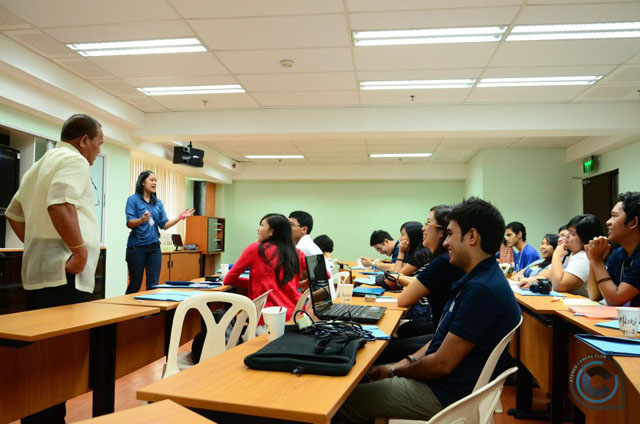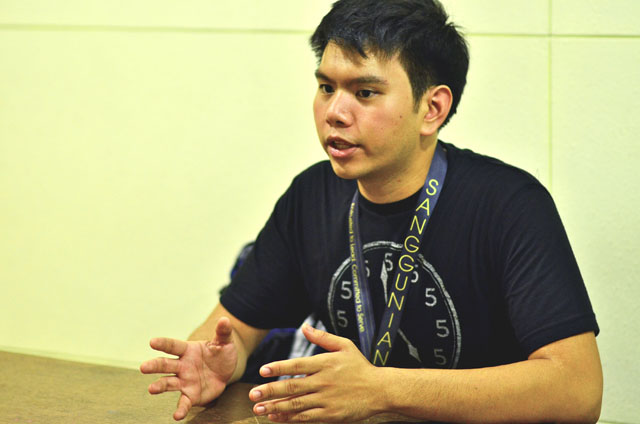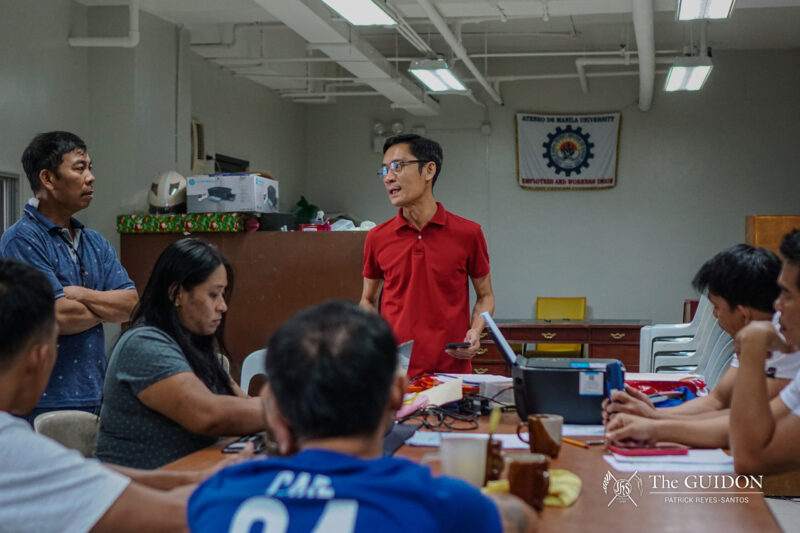
PLAYING A ROLE. Buklod Atenista plans to lobby issues to the local governments of each university. These issues have yet to be determined. Photo courtesy of Ateneo Camera Club, Xavier University.
THE 29TH Buklod Atenista Leaders’ Summit outlined plans for the upcoming 2013 national elections. Held last May 27 to 31 at Xavier University – Ateneo de Cagayan (XU) in Cagayan de Oro City, the annual congress trimmed the number of resolutions it released in order to focus more on the main issues student leaders agreed to act upon.
“In the past few years, we averaged around 20 resolutions per congress, [but] we realized that it was too much,” Alejo said.
The main initiative that the summit came up with is the expansion of the Ateneo Task Force 2013 across all Ateneo universities.
Member universities include the Ateneo de Manila University, the Ateneo de Naga University, the Ateneo de Davao University, the Ateneo de Zamboanga University and XU.
Four phases of the task force’s efforts will be standardized across all Ateneo universities: voter’s registration, voter’s education, mock elections and voter’s mobilization.
“[The five universities] will share information with regards to the candidates we will be inviting over, [and] we will share data on what we’ve achieved already in terms of registering students,” Sanggunian President Gio Alejo said.
Aside from the filing and promulgation of resolutions, the summit was also a venue where experts talked about pertinent issues in the country. Student councils from the participant universities also presented their best approaches in the running of their respective governments.
Centralized initiatives
Also in line with the elections is the preparation for the Ateneo Youth Agenda 2013.
“The Ateneo Youth Agenda is an output of the Ateneo Task Forces of all Buklod schools, which we will hopefully ratify by the end of the midyear convention and we will lobby to the candidates by the time campaign period starts,” Alejo said.
The Ateneo student councils will lobby for three issues to their local governments. The selection of the issues will be dependent on a survey that will be conducted among 25% of the student bodies of the respective universities. The top results will also indicate the issues the student councils will ask senators to address.
On a different note, a Buklod Atenista Humanitarian Aid network, patterned after the Jesuit Universities Humanitarian Action Network in the United States, is also in the works.
In this network, when a disaster or calamity hits one of the Ateneo universities, the other four will aid by monitoring the school affected by the disaster. They will also help with gathering resources, providing assistance and support and helping in rehabilitation efforts should there be a need for such.
Alejo said, “In the past three years, two schools have already been hit: Manila by Ondoy and Cagayan by Sendong. We just want to be ready because all schools are really prone [to disaster] and there are communities as well.”
Incorporating service-learning
Other than these issues, last year’s main initiative of incorporating service-learning in academic life is still a priority.
“[Service-learning] is not well-understood by a lot of people… so even in Buklod, we’re still fully understanding what service-learning is and how to integrate it in school,” said Buklod Atenista Permanent Secretariat member Cate Sison.
She added that its implementation involves several phases. After a student survey, information will be gathered regarding faculty members’ and departments’ support of service-learning, as well as the courses that could integrate it.
Phase two is a dialogue with the administration, and then a grassroots campaign. In phase three, service-learning could be expanded through programs offered by organizations.
Sison said that the Ateneo de Manila University is presently in phase two. Other Ateneo universities are still in phase one, except for XU, which is improving its program.
For a better Buklod
Now that Buklod Atenista has fewer resolutions to fulfill in one year, Sison thinks that the biggest improvement needed is the follow-through.
“Usually, [the promulgation of resolutions] is the end of the program… what then? We need to concretize planning after passing resolutions. Yes, it is stated in the resolutions what each university needs to do, but we need to make a timeline after that, [or] who does what,” Sison said.
Moreover, COA President Gigi de Villa thinks that the ties made in Buklod Atenista should be extended. “I hope we can bring down the network to the orgs, to the other members of the student body.”
She cited collaboration between student organizations of the different Ateneo universities as an example.
Alejo also said that the congress needs to expand. “We want more participants from schools in the near future. [The] problem really is financial… but ideally, it’s really a big congregation.”







